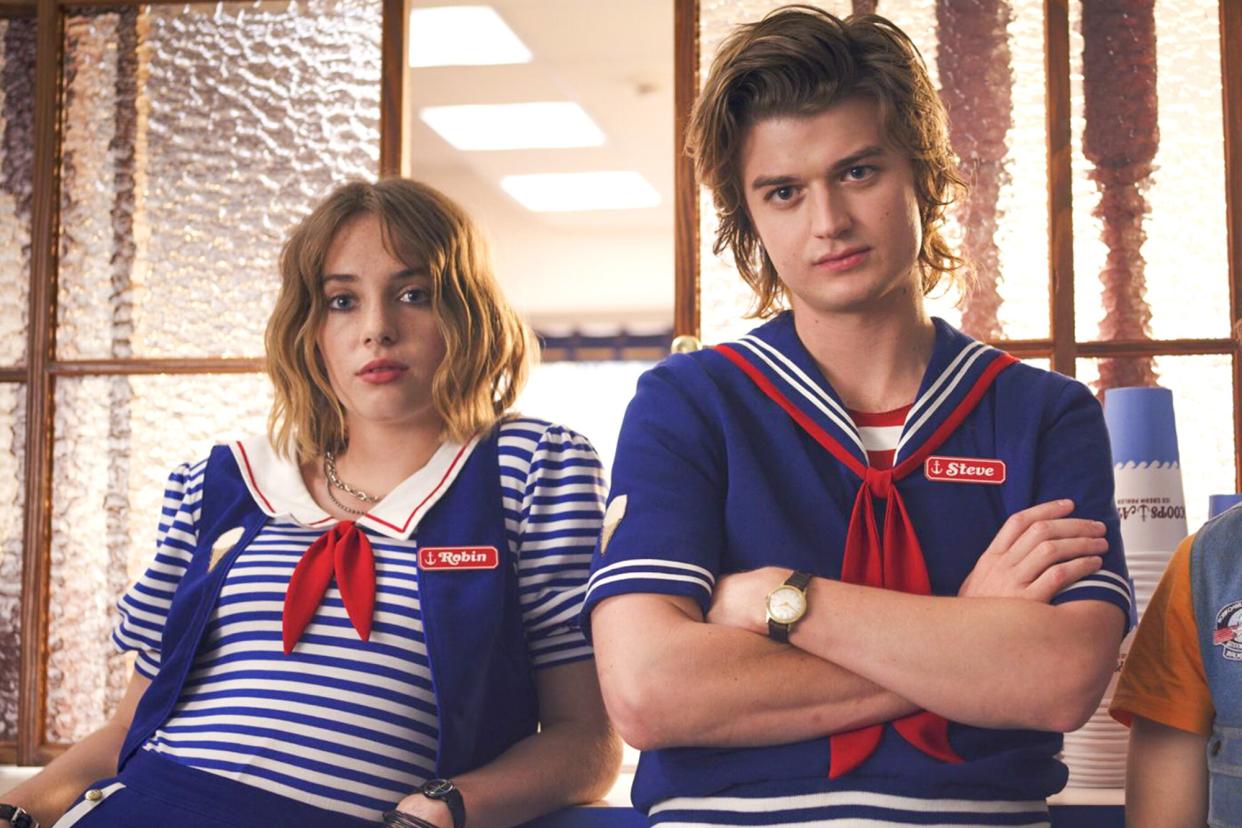Gen Z wants less sex, more platonic relationships in TV and movies, new study shows

- Oops!Something went wrong.Please try again later.
- Oops!Something went wrong.Please try again later.
Sorry, Riverdale and Euphoria. Turns out, Gen Z would like their TV shows to reflect what it's actually like to be a teenager.
A recently released UCLA "Teens and Screens" study, conducted by the Center for Scholars & Storytellers in August, surveyed 1,500 adolescents between the ages of 10 and 24 and found that most of them want to see less gratuitous sex in movies and television and more friendships instead. (Participants between the ages of 10 and 12 were not asked questions about sex and romance.)
"As demonstrated in this report, [adolescents have] grown tired of stereotypical, heteronormative storytelling that valorizes romantic and/or sexual relationships — especially ones that are toxic — and are looking for more representations of friendship, which is a core aspect of adolescence and social well-being," the report reads.
The study found that 51.5 percent of adolescents "want to see more content focused on friendships and platonic relationships" — think more characters like Robin (Maya Hawke) and Steve (Joe Keery) from Stranger Things — than the starry-eyed teen romances that continue to dominate streamers and networks.
Hawke has said she had "mixed" feelings about her character getting a girlfriend in the series' final season because friendships are "really important and they deserve their airtime."

Netflix Maya Hawke and Joe Keery on 'Stranger Things'
Respondents also revealed that they're not interested in watching characters who aren't compatible pair off, only to fight and break up over and over again.
"The stereotype of how romantic relationships are included and often feel unnatural, forced, or toxic was ranked 4 out of the top 10 most disliked stereotypes," the study showed, noting that other annoying tropes included "relationships being necessary to be happy, male and female leads always having to end up together romantically, love triangles, and more."
In general, 44.3 percent of those surveyed "felt that romance in media is overused," with 47.5 percent noting "that sex is unnecessary for the plot of most TV shows and movies."
Beyond unnecessary romantic relationships, participants would like to see racial stereotypes and unrealistic aspirational content eliminated from media, too.
"The No. 1 most disliked stereotype in shows and movies for the adolescent participants was racial-related stereotypes, with the top category within that being POC characters portraying villains or characterized as 'bad people,'" study's authors explained. "Echoing adolescents' desire for authenticity, unrealistic storylines (e.g., hard work always equals success, everything always works out perfectly, etc.) was the second-most-disliked stereotype by the adolescent respondents."
And while it might put a damper on Marvel's plans, 56 percent of adolescents said they preferred original content over "franchises, adaptations, and remakes" and, if given the chance, prefer binge-watching a series in its entirety to waiting for weekly installments.
But it wasn't all negative. Respondents noted that the topics they want to see reflected in media include "hopeful, uplifting content with people beating the odds" as well as "people with lives like my own" and "friendships," citing series like Stranger Things, Heartstopper, and The Summer I Turned Pretty as shows that felt the most authentic to their own experiences.
"While it's true that adolescents want less sex on TV and in movies, what the survey is really saying is that they want more and different kinds of relationships reflected in the media they watch," said Dr. Yalda T. Uhls, founder and director of CSS, co-author of the study, and adjunct professor in UCLA's psychology department, explaining the study's findings in a press release. "We know that young people are suffering an epidemic of loneliness and they're seeking modeling in the art they consume. While some storytellers use sex and romance as a shortcut to character connection, it's important for Hollywood to recognize that adolescents want stories that reflect the full spectrum of relationships."
You can read the full report here.
Sign up for Entertainment Weekly's free daily newsletter to get breaking TV news, exclusive first looks, recaps, reviews, interviews with your favorite stars, and more
Related content:

